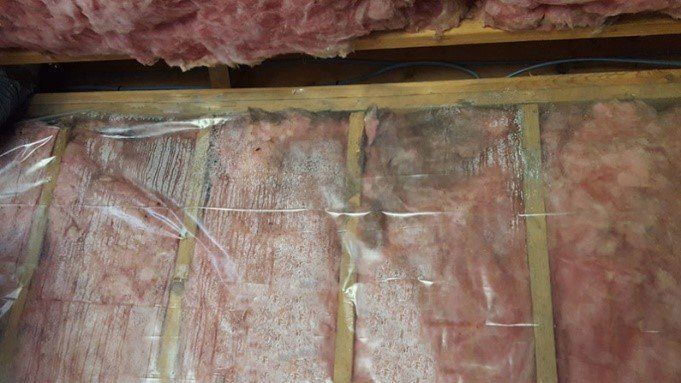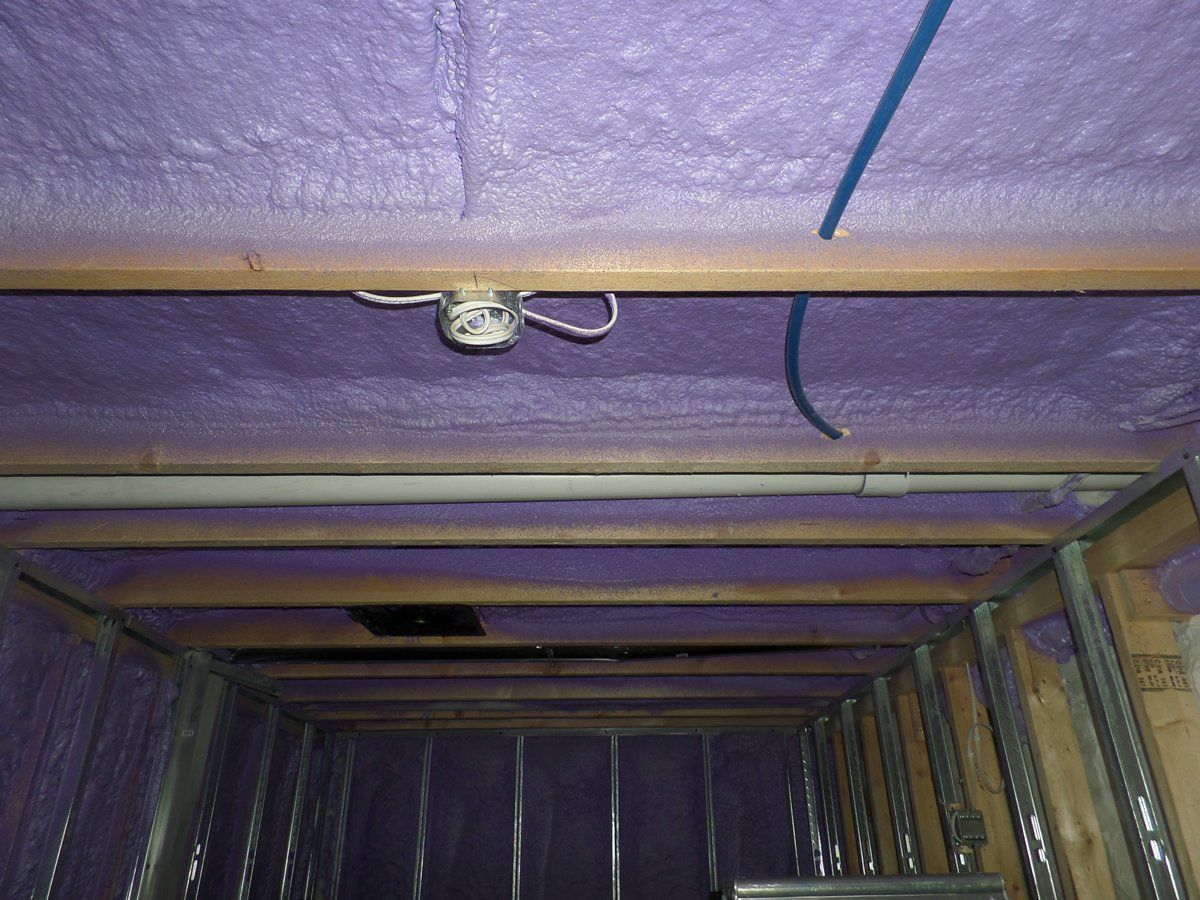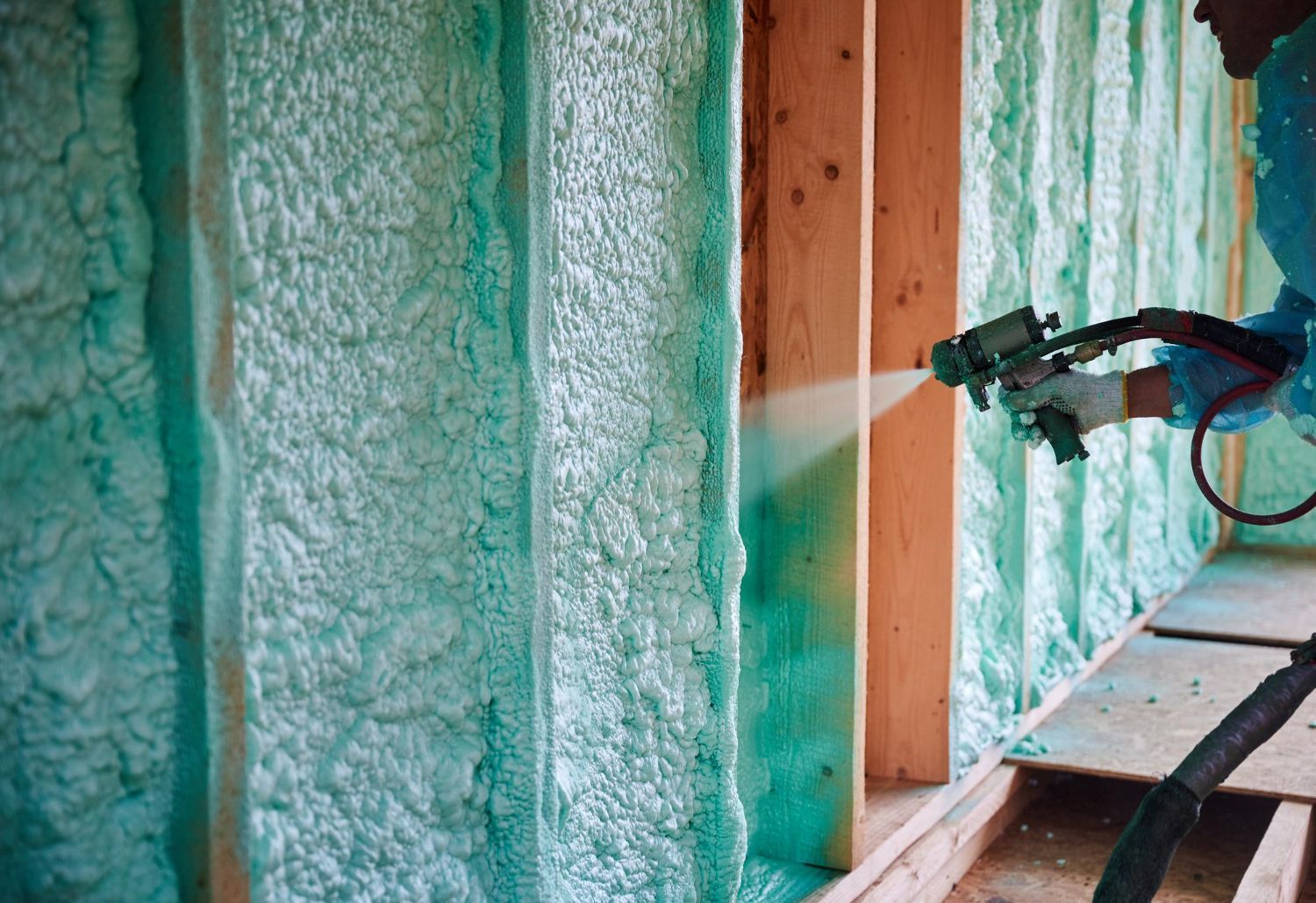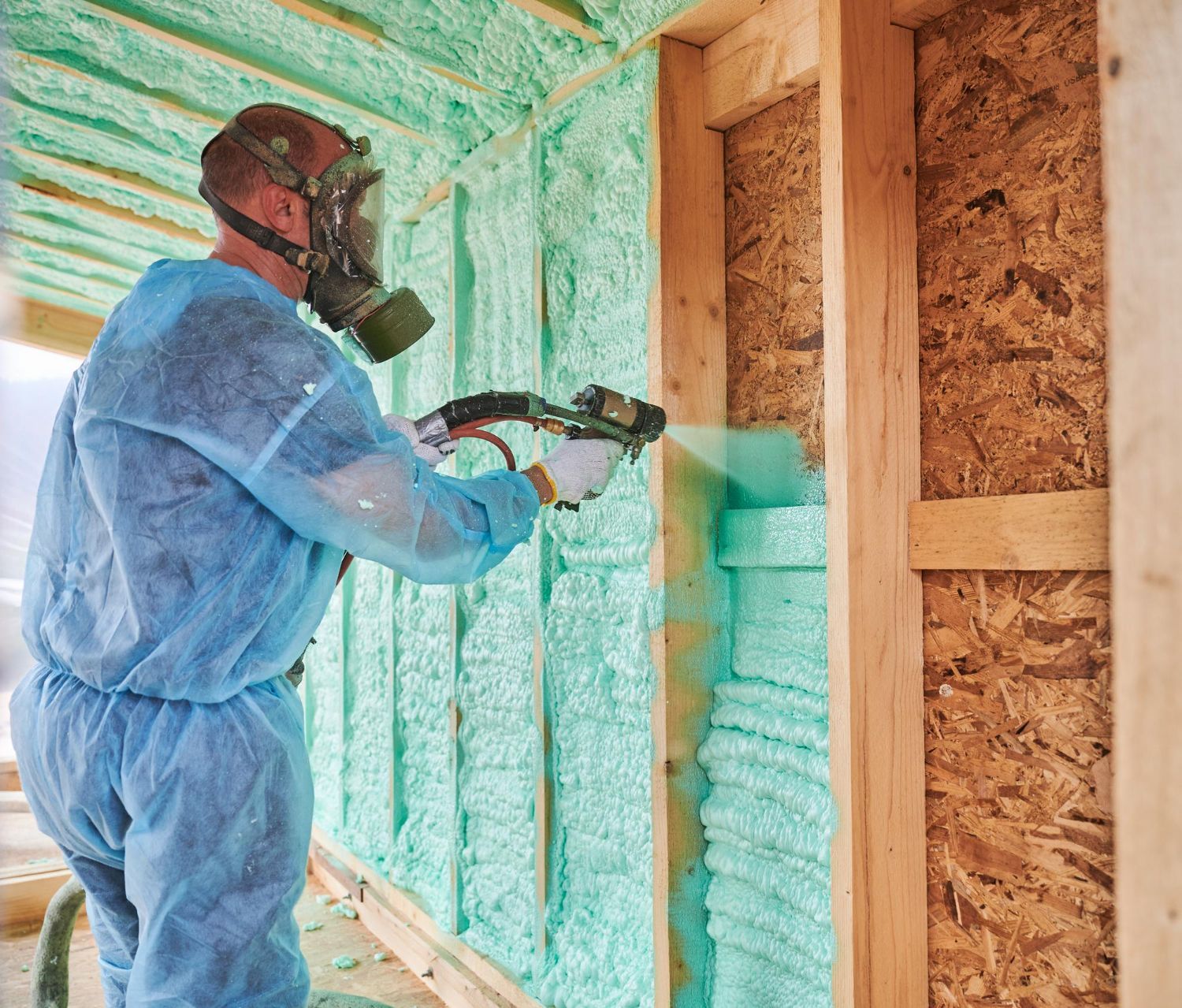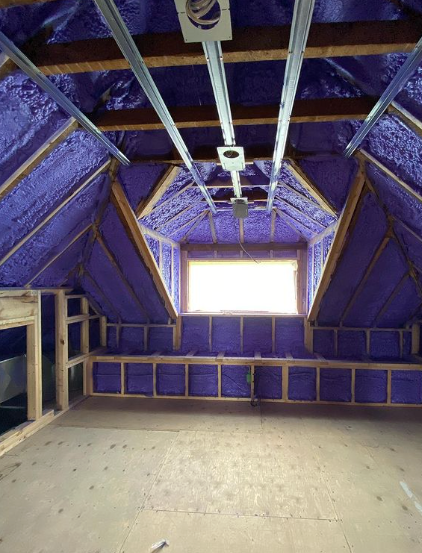In order to understand why spray foam is the perfect insulation for basements, we need to understand vapor drive and dew point. Vapor drive is a “push” that moves water vapor from areas of high concentration to low concentration. Vapor drive naturally diffuses moisture vapor into and through wall structures, resulting in condensation on cool surfaces. The dew point is the temperature to which air must be cooled to become saturated with water vapor assuming constant air pressure and water content. When cooled below the dew point, moisture capacity is reduced and airborne water vapor will condense to form liquid water known as dew. When this occurs via contact with a colder surface, dew will form on that surface.
Because Toronto has temperatures that range from a low of -40c (wind chill) on the coldest days of the year to a high of +40c (humidex) on the hottest days of the year, we are asking a lot of our insulation to keep our homes comfortable and healthy through such a range of temperatures, notwithstanding our indoor climate which, due to AC and HVAC, can quickly fluctuate depending on personal comfort.
When you fill a wall with a highly vapor-permeable insulation (fiberglass batts) and cover one side of it with a virtually nonpermeable vapor retarder (poly), the vapor retarder will be on the wrong side of the assembly for part of the year and inhibit the wall’s ability to dry. Water vapor constantly diffuses through building materials from the warm, humid side of a house toward the cold, dry side. So, in the summer, when a lot of homes are air-conditioned, vapor is driven toward the interior. In the winter, vapor drive is toward the exterior.
The temperature of the basement wall assembly can be effectively kept above the dew point by filling the cavity with closed-cell spray foam. Spray foam has the highest r-value of all the various types of insulation but it’s greater strength is that is also an air-barrier. Air cannot pass through (unlike fiberglass or rockwool which is porous) and therefore there can be no moisture drive through a wall with spray foam.
Because fiberglass and rockwool are porous, they will collect moisture in the wall assembly even when there is a vapor barrier in place. As mentioned earlier, the moisture drive will change direction depending on where the area of high concentration of moisture is. Basements insulated with this type of insulation are often dank or musty. The moisture is being trapped in the wall assembly and cannot dry out. If there is excessive moisture accumulating there will be mold and potentially wood rot.
In this photo, you can see the mold that is forming as a result of the moisture that is trapped behind the vapor barrier.
